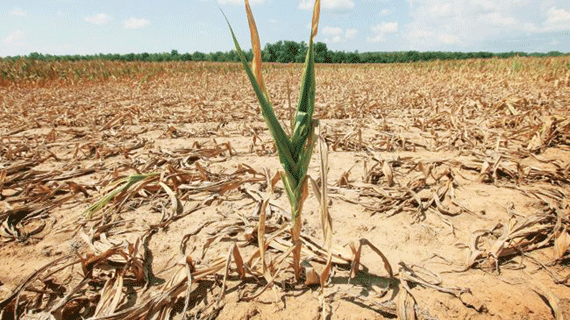
FORMER chairperson of the Matabeleland South Chiefs’ Council, Chief Malaba, has called for the urgent return of humanitarian aid agencies to prevent hunger-related deaths and widespread malnutrition in the province.
NQOBANI NDLOVU STAFF REPORTER
Recent reports indicated that malnutrition affected scores of villagers in Matabeleland South with some children seeking treatment at hospitals and clinics as severe hunger stalks the drought-stricken province.
Poor rains in past seasons have been blamed for the ravaging drought in Matabeleland South and despite the government’s promises that no one would starve, Chief Malaba said most villagers were going hungry.
“In every place that you visit, you are met by calls for food assistance from villagers,” he said.
“The hunger situation in the province needs urgent intervention. Non-governmental organisations (NGOs) have been of great assistance before and villagers want their return because this is a humanitarian crisis.”
Southern Eye established that a number of NGOs that used to distribute food aid in the province were no longer doing so because of budget cuts.
MDC-T Matabeleland South provincial spokesperson Mthokozisi Bhebhe said there were virtually no NGO activities in the province.
- Chamisa under fire over US$120K donation
- Mavhunga puts DeMbare into Chibuku quarterfinals
- Pension funds bet on Cabora Bassa oilfields
- Councils defy govt fire tender directive
Keep Reading
“It all has to do with our international relations since our ministers harass, intimidate and threaten NGOs that distribute food aid.”
Matabeleland South Provincial Affairs minister Abednico Ncube threatened to expel NGOs from the province in October last year accusing them of peddling falsehoods about the Zanu PF government. Ncube could not be reached for comment yesterday.
The government’s food aid programme faces funding shortfalls with the Public Service, Labour and Social Welfare ministr acting director Sydney Mhishi saying 75% of the targeted beneficiaries numbering 1,8 million starving people might not be supported.
Mhishi was quoted last week saying this was because his ministry was only allocated $1,6 million in the 2014 budget instead of $12 million needed to prevent starvation. He added that some government-supported institutions like orphanages faced closure as a result. Malaba said the hunger situation in the province could have been eased if the Isiphala Senkosi programmes were up and running.
Isiphala Senkosi is a programme led by traditional leaders whereby surplus harvests are stored aside for the benefit of orphans and vulnerable members of the community in times of need.
“We do have Isiphala Senkosi programmes, but because of the poor rains in the past seasons, we cannot look up to it. All that is required is food aid,” Chief Malaba said.
Public Service, Labour and Social Welfare minister Nicholas Goche’s office said he was on leave while his deputy Tongai Muzenda and permanent secretary Ngoni Masoka were said to be in marathon meetings.
Later on, Muzenda was said to be on his way to Masvingo.
The government is struggling to import food from neighbouring countries owing to the liquidity crisis.
The United Nations World Food Programme recently said 2,2 million people needed food assistance saying this “is the highest since early 2009 when more than half the population required food support”.










